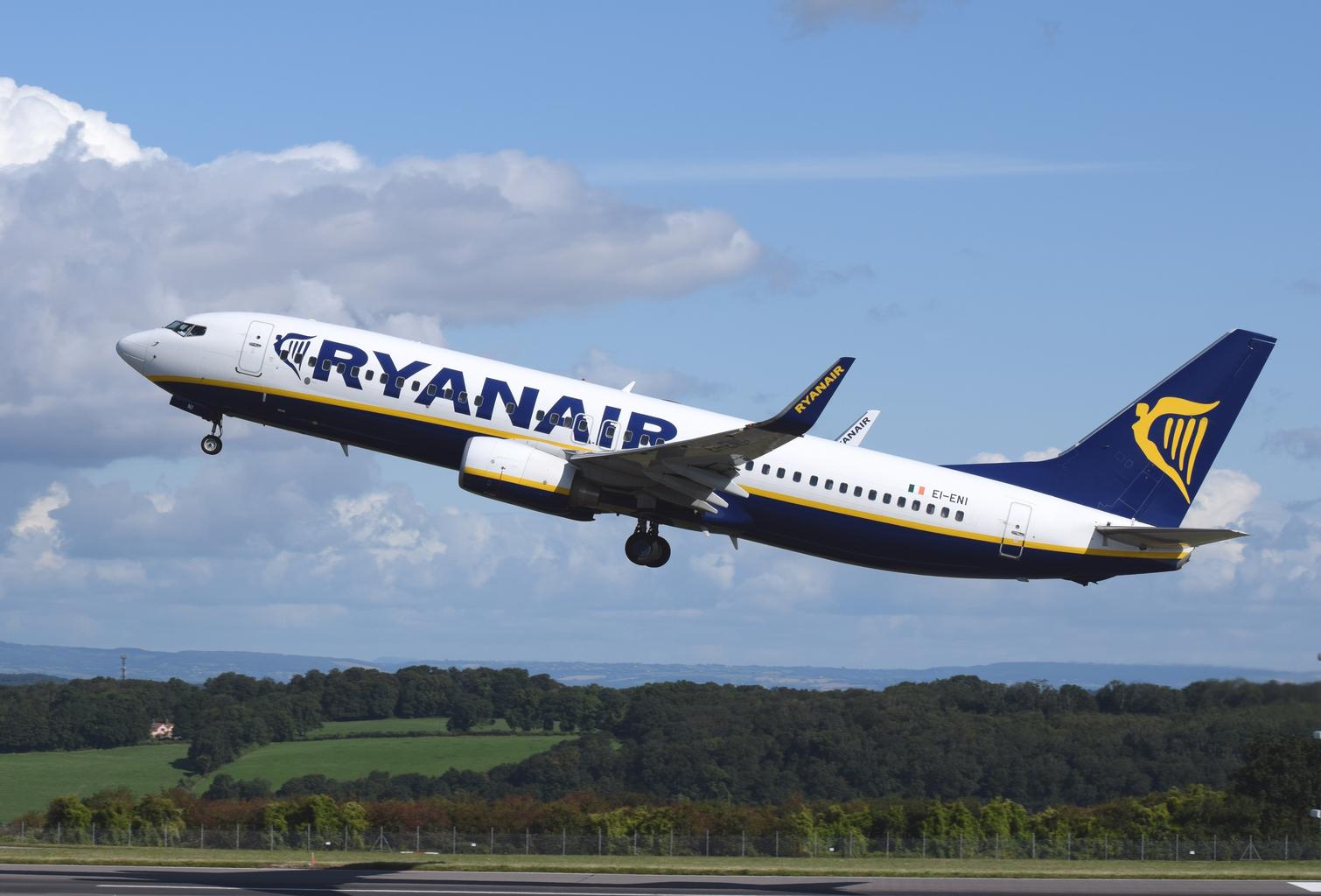
Ryanair's CEO said the airline will not fly if it is forced to keep middle seats empty to maintain social distancing to stop the coronavirus spread.
Michael O'Leary told the Financial Times that the idea would be "entirely ineffective," making it impossible for the airline to make money while also not keeping passengers far enough apart anyway.
"We can't make money on 66% load factors," he said, adding: "The middle seat doesn't deliver any social distancing, so it's kind of an idiotic idea that doesn't achieve anything anyway."
Some airlines have said they will keep empty seats between passengers, and the EU said social distancing rules will need to be in place. Ryanair is an Irish airline.
Ryanair, like most other airlines, has had to ground most of its flights, but O'Leary said it expects most flights to resume this year if a middle seat rule is not put in place.
The CEO of Ryanair, one of the world's largest airlines, said his planes won't fly if the airline has to keep the middle seat empty to comply with "idiotic" social distancing rules due to the coronavirus.
Michael O'Leary told the Financial Times that the proposal would be "entirely ineffective" - even as experts proposed it and some airlines have agreed to it as a way to keep social distancing in place as countries start to reopen and more flights resume.
O'Leary said that the Irish airline's plans to start flying more would be ruined by "some entirely ineffective social distancing measures like having middle seats empty because if middle seats are empty we're not returning to flying at all."
He said that the airline had told the Irish government that if it tried to impose such a rule then "either the government pays for the middle seat or we won't fly."
O'Leary also said that the airline could not make a profit by having so few people on planes, and that simply not having anyone sitting in a middle seat would not leave people far enough apart to create effective social distancing anyway.
"We can't make money on 66% load factors. Even if you do that, the middle seat doesn't deliver any social distancing, so it's kind of an idiotic idea that doesn't achieve anything anyway," he said.
The low-cost airline, which flies primarily in Europe, is the world's largest airline by the number of routes, and was in 2019 it ranked as the world's fifth-biggest airline by the number of seats available to passengers.
'If social distancing is imposed, cheap travel is over'
The idea that planes should fly without a middle seat passenger has been recommended by analysts, and the EU's Transport Commissioner, Adina Valean, said some social distancing rules will need to be in place in airports and planes, though she did not specify whether there would be rules about middle seats.
Long-haul airline Emirates said this week that it will keep empty seats between individuals and groups on flights, while US airline Delta said it will leave middle seats empty to "help customers and employees practice social distancing."
Alexandre de Juniac, the head of International Air Transport Association (IATA) - the airline industry's global trade body - told Reuters that airlines are likely going to have to keep the middle seat empty on flights from now on.
But he has also warned that social distancing measures could particularly harm low-cost airlines, as they would be forced to increase ticket prices.
"So it means that if social distancing is imposed, cheap travel is over," he said.
It is not yet clear how effective removing the middle passenger would be for social distancing.
The BBC reported that, on an average plane, you would need to be more than four seats apart from other people in order to be the recommended two meters or six feet away from each other.
Health experts have been supportive of removing the middle seat in the short term, even as they acknowledged that it may not be economically sustainable in the long term, the BBC added.
Like the rest of the industry, Ryanair's flights have been decimated by the virus. As of March, Ryanair was operating fewer than 20 flights a day - less than 1% of their usual daily average of 2,500.
O'Leary said the airline expects to run around 40% of its flights in July if air travel is resumed by then, and said that around 50% to 60% of the seats would be filled.
He said he expects to run around 80% of its flights by September, but said that these plans would be ruined if the airline couldn't fill the middle seat.
The pandemic has already forced some airlines to shut, is expected to cost airlines hundreds of billions of dollars, and could cause low-cost fares to disappear.
But O'Leary is positive about his own airline's future, expecting normal traffic to return by summer 2021 and for Ryanair to be fueled by rivals collapsing.

Ingen kommentarer:
Legg inn en kommentar
Merk: Bare medlemmer av denne bloggen kan legge inn en kommentar.